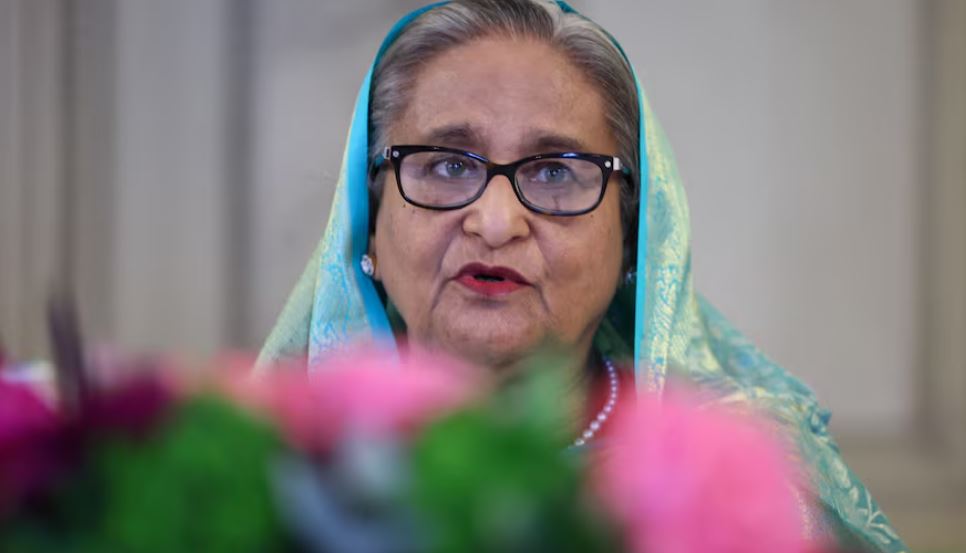Bangladesh’s Tumultuous Political Landscape: A History of Confrontation
The recent ousting of Prime Minister Sheikh Hasina’s government in Bangladesh, amidst violent protests and political turmoil, is not an isolated incident but rather a manifestation of the nation’s deeply entrenched history of confrontational politics. This latest upheaval, triggered by protests against a job-quota system and fueled by long-standing grievances against Hasina’s regime, has once again plunged Bangladesh into a state of uncertainty, raising questions about the nation’s democratic trajectory and the challenges that lie ahead.
Deep-Rooted Political Polarisation: A Legacy of Conflict
The roots of Bangladesh’s political instability can be traced back to its inception as an independent nation. The assassination of Sheikh Mujibur Rahman, the founding father of Bangladesh, in 1975, set the stage for a series of military coups and counter-coups, establishing a pattern of political violence and instability that has persisted for decades.
The rivalry between the two dominant political parties, the Awami League (AL) and the Bangladesh Nationalist Party (BNP), has further exacerbated the situation. These two parties, representing divergent ideological and political perspectives, have engaged in a perpetual power struggle marked by accusations of corruption, electoral fraud, and human rights abuses. The lack of trust and cooperation between the AL and BNP has created a toxic political environment, where compromise and consensus are elusive.
The Role of the Military: A Double-Edged Sword
The military has played a significant, albeit controversial, role in Bangladesh’s political landscape. In times of crisis, the military has often intervened, ostensibly to restore order and stability. However, these interventions have also raised concerns about the military’s influence on the political process and its potential to undermine democratic institutions.
The military’s involvement in the current interim government, led by Muhammad Yunus, has sparked debate about its role in the transition to a new elected government. While some view the military’s presence as a necessary stabilizing force, others fear that it could impede the establishment of a truly democratic and representative government.
Confrontational Politics and the Absence of Compromise: A Toxic Brew
A defining characteristic of Bangladeshi politics is the prevalence of confrontational tactics and the absence of a culture of compromise. Political discourse is often characterized by vitriolic rhetoric, personal attacks, and a refusal to engage in constructive dialogue. This adversarial approach has hindered the development of a mature and stable democracy, where differing viewpoints are respected and debated in a civil manner.
The lack of compromise has also led to frequent political deadlock, with both the AL and BNP resorting to street protests, strikes, and other disruptive tactics to achieve their political goals. This cycle of confrontation has created a climate of fear and uncertainty, deterring investment, hindering economic growth, and undermining social cohesion.
Economic Discontent and Social Unrest: Fueling Political Instability
While ideological differences and political rivalries are significant drivers of Bangladesh’s political turmoil, economic grievances and social inequalities also play a crucial role. Despite experiencing rapid economic growth in recent years, Bangladesh continues to grapple with widespread poverty, unemployment, and income inequality.
The unequal distribution of wealth has fueled social unrest and created fertile ground for political exploitation. Disgruntled citizens, frustrated by their economic plight, are more likely to be swayed by populist rhetoric and participate in protests, further destabilizing the political system.
Geopolitical Implications: India’s Concerns and Regional Stability
The political instability in Bangladesh has far-reaching geopolitical implications, particularly for neighboring India. The rise of religious extremism and insurgency within Bangladesh poses a direct security threat to India, as does the potential for mass migration across the porous border.
Additionally, the political turmoil could disrupt ongoing bilateral cooperation on critical issues such as trade, connectivity, and counter-terrorism. A stable and prosperous Bangladesh is in India’s national interest, and the current crisis presents a significant challenge to this objective.
The Way Forward: A Fragile Hope for Stability and Democracy
The formation of an interim government under Muhammad Yunus offers a glimmer of hope for a peaceful transition and the restoration of stability in Bangladesh. However, the challenges facing the interim government are immense.
First and foremost, the government must focus on stabilizing the economy and addressing the social grievances that have fueled the recent unrest. This will require a combination of short-term measures to alleviate immediate hardships and long-term strategies to promote sustainable and inclusive growth.
Secondly, the interim government must create an environment conducive to free and fair elections. This will involve ensuring the independence and impartiality of the electoral commission, protecting the rights of all political parties to campaign freely, and preventing violence and intimidation.
Finally, the interim government must engage in a process of national dialogue and reconciliation to address the underlying causes of political polarization and conflict. This will require a willingness to compromise, a commitment to democratic values, and a recognition of the shared aspirations of all Bangladeshi citizens.
The international community, including India, has a crucial role to play in supporting Bangladesh’s efforts to achieve lasting peace and stability. By providing financial assistance, technical expertise, and diplomatic support, the international community can help Bangladesh overcome its current challenges and build a more democratic and prosperous future.

Sunil Garnayak is an expert in Indian news with extensive knowledge of the nation’s political, social, and economic landscape and international relations. With years of experience in journalism, Sunil delivers in-depth analysis and accurate reporting that keeps readers informed about the latest developments in India. His commitment to factual accuracy and nuanced storytelling ensures that his articles provide valuable insights into the country’s most pressing issues.



